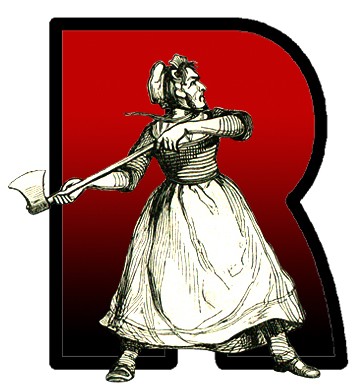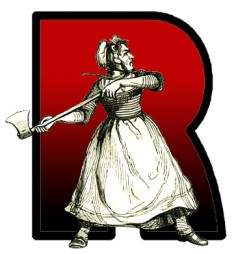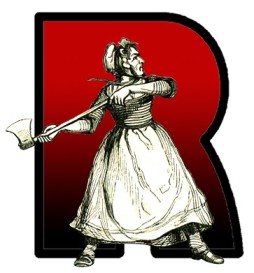
TOMORROW THE American economist Ellen Brown will give a talk in Cardiff about setting up a Public Bank of Wales.
Brown is at the forefront of a US movement promoting publicly-owned banks as a solution to the problem of low growth and stagnant living standards.
The lecture is organised by Cardiff University Business School and the pressure group Arian Cymru.
Few attending the event will remember that nearly half a century ago the Liberal Party proposed a public Bank of Wales.
That initiative was sabotaged by the Welsh establishment which supported a rival — the Commercial Bank of Wales — promoted by the moneylender Julian Hodge.
Backed by James Callaghan and George Thomas, both Cardiff MPs, Hodge’s bank was a fraud.
It was designed to enrich the elite while doing virtually nothing for the people of Wales.
It was taken over by the Bank of Scotland in 1986 and ceased trading in 2002.
The only exposé of this sordid episode was an investigation by the magazine Rebecca in 1977.
Called Cheque Mates: The Selling Of The Commercial Bank Of Wales, it’s reprinted here as a cautionary tale about the way the establishment worked in Wales back in the 1970s.
One of those who backed Hodge’s Bank, the former Controller of BBC Wales Geraint Talfan Davies, has been calling for its return.
In 2009, in the aftermath of the banking crisis, the Western Mail published an article by Talfan Davies.
“In this new situation,” he wrote, “the title Bank of Wales might have a real value for society and government in Wales.”
“After all, it is a name that has too much of a public resonance to languish as a discarded private pawn.”
“It should be regarded as a Welsh national asset.”
Talfan Davies did not say that the name had been tarnished by its association with the unscrupulous Hodge.
He did not say that he’d supported the Hodge bank — and revealed nothing of its sorry history …

THE MORNING of 9 February 1971 was an important occasion for Geraint Talfan Davies, then Welsh Affairs Correspondent of the Western Mail. First he attended the birth of his second son Rhodri (father and son would later lead BBC Wales). The father then rushed to join the celebrations of another birth — the Commercial Bank of Wales. On the top floor of Sir Julian Hodge’s Cardiff skyscraper, he was just in time to join the “Usurer of the Valleys” and former Welsh Secretary George Thomas. Thomas was smoking a giant cigar — Hodge puffing on his pipe. Talfan Davies had written some ‘supportive columns’ about the new bank — and there were high hopes for this new powerhouse of the Welsh economy. In his autobiography, At Arm’s Length (Seren, 2008), Talfan Davies admitted: “In the 1970s it appeared a more important victory than it turned out to be.” Talfan Davies went on to become the head of one of the most important cliques in modern Welsh history — and has been featured in a series of Rebecca Television articles (see The Son Of The Man From Uncle, In The Name of The Father? and The Great Welsh Water Robbery). Photo: Seren
♦♦♦
CHEQUE MATES: THE SELLING OF THE COMMERCIAL BANK OF WALES
Rebecca, Spring 1977
♦♦♦
FOR GEORGE THOMAS ‘the biggest event for Wales in my lifetime’ was the launching of the Commercial Bank of Wales in February 1971.
At the time Thomas was Shadow Secretary of State for Wales in the Labour opposition and had been an MP for 20 years with five of them spent in Harold Wilson’s cabinet as Welsh secretary.
In his lifetime he had seen many changes in Wales — the nationalisation of the coal and steel industries, the introduction of the National Health Service, comprehensive education and even the Labour victory in the 1964 general election.
All were passed over.
And if the establishment of the bank was the ‘biggest event’ there was no doubt in his mind about the greatest Welshman — Julian Hodge, the Welsh merchant banker knighted the year before by Wilson’s government, and the man behind the bank.
“I believe,” said Thomas, “Sir Julian has done more for Wales than David Lloyd George and all of us politicians together.”
“I see this as an act of faith in the future of Wales. No one can measure what this bank could mean for us in the years ahead.”
No other comment by a Labour politician more accurately captures the political bankruptcy of the Labour party in its support for big business at the expense of ordinary people.
Julian Hodge was equally ecstatic but with good reason:
“I believe this is the first time for many years that a company with the word ‘bank’ in its title has been incorporated in the United Kingdom”.
It was no easy task — he had to overcome the resistance of Civil Service and Bank of England mandarins and beat off an attempt by the Liberals to set up a genuine Bank of Wales.
When the board of directors for the Commercial Bank of Wales — including George Thomas and James Callaghan — was announced in May 1972, Hodge admitted it was ‘like a dream come true’.
This article tells part of the incredible story of how two Labour Cabinet ministers helped the Welsh merchant banker to overcome all obstacles and make that dream come true.
♦♦♦
IN JUNE 1968 the Secretary of State for Wales bumped into the London financier John Ellis at a garden party held in the grounds of Buckingham Palace.
Ellis, chairman of a sizeable finance house in the City of London, was the prospective Liberal candidate for James Callaghan’s Cardiff South East constituency.
In the conversation that followed Ellis told George Thomas that there was a need for a Bank of Wales.

GEORGE THOMAS fawned on Julian Hodge. The photograph shows Thomas presenting the merchant banker with a gold watch to celebrate his knighthood in 1970. Thomas turned a blind eye to the misery caused by the accountant-turned-moneylender in the 1960s and 1970s. Hodge made millions out of a ruthless second mortgage operation, some of it involving a fraudulent pyramid-selling scheme. The number of victims who lost their homes as a result of the scandal is not known — a Rebecca investigation in 1977 estimated it could have been as high as 5,000 …
Wales had no independent banks — unlike Scotland which boasted five — with the result that all financial decisions affecting Wales were taken in London.
More important, a Bank of Wales could organise a system where the ‘special deposits’ demanded by the Bank of England as a means of controlling the economy could be reduced.
At the time the five main clearing banks in England and Wales had to deposit 2 per cent of all the money they held with the Bank of England.
In Scotland the rate was only 1 per cent — if the figure had been the same for Wales then the clearing banks in Wales would have had an extra £25–30 million to spend.
Thomas was impressed by Ellis’ ideas and agreed to meet him in Cardiff to discuss his proposals in greater detail.
The meeting took place over lunch at the Queens Hotel in Cardiff’s St Mary Street on Saturday, 7 September 1968.
During the meal Ellis stressed that the bank could be opened at the same time as the planned investiture of the Prince of Wales in 1969 — with the heir to the throne becoming the first account holder.
Although it was never stated, there would be considerable prestige for George Thomas as the Secretary of State who acted as political midwife to the new bank.
So enthusiastic was Thomas — he went so far as to ask the banker to prepare a detailed memorandum on his scheme — that Ellis thought the idea well and truly sold.
It was not until the meal was over and the two men standing on the pavement outside the hotel that the conversation took an unexpected turn.
Ellis remembers the moment vividly because, looking back, it was in those seconds that the Liberal idea for a Bank of Wales died.
Thomas said — “what about Julian Hodge?”
He swept his arm along the frontage of the massive James Howell department store and added, “he owns all of this you know”.
A surprised Ellis replied that Hodge was welcome as a shareholder and director but the Bank of Wales would have nothing to do with either second mortgages or hire purchase agreements on second hand cars.
Before taking his leave, Thomas asked Ellis to send a copy of his memorandum to Julian Hodge.
He then promised to return and make a statement to waiting reporters.
An hour or an hour or so later, he rang Ellis at the hotel to say that he could not make a statement on the Bank of Wales at that time.
And that was the last Ellis was ever to hear from George Thomas — the Secretary of State never acknowledged the memorandum Ellis sent him (ironically enough, Hodge did) let alone reply to it.
♦♦♦
ELLIS PLOUGHED on nevertheless.
On 26 November 1968 he met the Chief Cashier of the Bank of England, Jasper Hollom, to discuss his proposals.
Hollom — now Sir Jasper and a deputy governor — was sympathetic and agreed that it was unfair that Wales should suffer the same rate of ‘special deposits’ as England.
Despite this, it soon became obvious to those involved in the Ellis scheme that they had come up against an official brick wall.
The campaign came to an end on 20 December 1968 when the Board of Trade refused permission for the bank on the grounds that it was not owned by an existing bank or a company with a strong financial position.
In fact Ellis had plenty of banking support — what was then the National Provincial Bank (now part of National Westminster) was interested as were the powerful merchant bankers N. M. Rothchild and Sons.
But the Board of Trade decision was a clear sign that a Bank of Wales along the lines suggested by Ellis and the Liberals would not be tolerated.
And, as they would settle for nothing less, they excepted that they had been beaten.
♦♦♦
WHILE THE Liberal campaign for a Bank of Wales was grinding to a halt, Julian Hodge was quietly preparing the ground for what was to become the Commercial Bank of Wales.
Part of the groundwork was to shut out the possibility of a Liberal-inspired Bank of Wales.
In these preparations George Thomas, then Secretary of State for Wales, played an important part.

HODGE CHOSE a 12th century Welsh penny as the symbol of the Bank of Wales. In February 1972 he proclaimed it would “be an independent bank with no company or group of companies holding more than 10 per cent of the shares.” By October the same year, the Hodge Group held 16 per cent and the First National Bank of Chicago 20 per cent …
It was he who set up the Welsh Council in 1968 and appointed Julian Hodge as one of its 14 members.
The first task of the Council, decided at its second meeting in June 1968, was to set up a Finance Panel “to enquire into the availability of public and private capital in Wales for development purposes and to look at means of improving the flow if difficulties were found to exist.”
When George Thomas met Ellis at Buckingham Palace, and again in Cardiff, he made no mention of the Finance Panel deliberations that were to lead to the Commercial Bank of Wales.
The Ellis campaign certainly worried Hodge — it was a public campaign by a political party (a Bank of Wales was proposed in the 1970 Liberal manifesto) while Hodge’s strategy was to persuade a small group of key people that his bank was a sound idea.
When the details of Ellis’ memorandum were released in October 1968 Hodge was forced into the open.
The proposals in the Ellis document, he commented, were not realistic.
“The setting up of a national Bank for Wales is an extremely complicated business, requiring a great deal of research.”
He added — “this work is now being carried out by the Finance Panel of the Welsh Council”.
When Ellis was seeking Board of Trade approval for the Liberal Bank of Wales, the Western Mail noted (22 October 1968) — “a projected investment bank is also being considered by the finance committee of the Welsh Council, who will be reporting soon to the Secretary of State for Wales”.
By the time the Finance Panel report presented its report to the full Welsh Council meeting at Llandudno on 21 April 1969, its purpose was revealed to be little more than a thinly disguised attempt to justify a Hodge-controlled Bank of Wales.
The report was not finally published until 7 October 1969.
Under the title The Availability of Capital for Small Firms in Wales, it stated “that a financial institution with a commitment to Wales … is urgently required”.
It recommended “that, if private sources should put up viable proposals for the registration of a bank or a similar institution, the authorities concerned should pay full regard to the analysis and recommendations contained in this paper “.
At Llandudno the Welsh Council, with just one dissenting vote, accepted the report — handing George Thomas a blank cheque to give the political go-ahead for a Bank of Wales.
On the very same day Hodge admitted that “some months ago, preliminary steps were taken through our solicitors towards registering a company with a proposed initial capital of £5 million to be called the Bank of Wales”.
What could be more blatant?
And Rebecca can now reveal that the published report was completely different to the one presented to the Welsh Council at Llandudno in April 1969.
The earlier version was far more pointed — its title was The Case for an Indigenous Investment Bank in Wales — and it was never published.
This first version ends:
“Finally, the Council are of the opinion that if some private source should put up really sound proposals for the registration of a bank or similar institution then the authorities concerned should, when considering the application, have full and sympathetic regard to the views of the Council as to the benefits which would accrue to Wales from a firmly-based and financially viable institution of this sort.”
The published report says sources, the earlier unpublished version mentions a single source and there can be no doubt to what it was referring — Julian Hodge’s plans for a Commercial Bank of Wales.
♦♦♦
THE FINANCE Panel report was one of the meanest and most poorly argued documents ever to come out of a Welsh Office sponsored body.
After ten months of work on what Hodge himself described as ‘an extremely complicated business, requiring a great deal of research’, the Panel produced a report exactly eight pages long.
There were just 31 paragraphs — four dealt with other countries and a further nine were taken up by a minority report that came up against the whole idea of a Bank of Wales.
Most of the evidence was oral and there were only five witnesses.

WHEN REBECCA asked the Welsh Office for a copy of the Welsh Council’s Finance Panel report, it sent — by accident — an earlier draft which talked of a single source for a possible bank. When the report was finally published, the word had changed to “sources”…
With so few ‘experts’ giving evidence, it must have been deeply embarrassing to the panel that two of them felt there was no need for a bank.
The local director of one of the clearing banks ‘stated that he knew of no case in Wales when money had been refused for industrial development’.
The general manager of the government-backed Industrial and Commercial Finance Corporation ‘suggested that the problem was not so much a shortage of finance in Wales as a relative lack of demand’.
Although the Confederation of British Industry in Wales and the Development Corporation for Wales were more enthusiastic, they could provide little in the way of hard evidence.
In the words of the report — “their views were that, whether or not a general flow of finance appeared adequate, there were known to be a certain number of cases where firms have been unable to raise finance without a great deal of difficulty, despite the fact that their subsequent history has shown them to be successful”.
No names, no evidence — and the companies mentioned did get their money.
Indeed, and ironically, the only ‘concrete’ evidence was to come from ‘a well-known merchant banker’ — none other than Julian Hodge, a member of the Panel.
Hodge “supplied confidential evidence of a number of cases where firms, unable to raise credit from normal sources, had approached his firm and had thereby been enabled to show a successful subsequent growth record, even though his firm, as a merchant bank, concerned largely largely with short-term bridging finance, was not so ideally suited to deal with, and further develop, this kind of business as would be an investment bank designed purposely to meet such a demand “.
Thus it was Hodge’s confidential — and therefore secret — evidence that formed the basis of the Finance Panel recommendation that a (Hodge-controlled) Bank of Wales should be established.
Only one member of the panel did not swallow this rubbish.
In his minority report, the district secretary of the APEX trade union, Graham Saunders, wrote:
“in my opinion, insufficient evidence was presented to the Finance Panel of the Welsh Council, demonstrating that there is a real shortage of Risk Capital in Wales and, therefore, the conclusions of the Welsh Council in my view are irrelevant “.
He suggested that, instead of relying on evidence presented by one of its own members, the Finance Panel investigate the lack of demand for capital and look for ways to increase it.
But the Finance Panel was clearly not interested in considering such complex questions questions — its report didn’t examine the impact of the regional aid policy or the ‘special deposits’ that were one of the central features features of the Ellis memorandum — and concentrated on giving Julian Hodge exactly what he wanted.
♦♦♦
BUT THIS is only part of the selling of the Commercial bank of Wales.
The most important gaps being the parts played at Board of Trade, Bank of England and Cabinets levels by George Thomas and James Callaghan.

JAMES CALLAGHAN’S friendship with Julian Hodge — the “Usurer of the Valleys” as Private Eye called him — was long-standing. Hodge supported Callaghan’s election campaigns and often gave work to his constituency agent Jack, later Lord, Brooks. After he resigned as Chancellor in 1967, Callaghan attended the annual conference of the International monetary Fund as the guest of Julian Hodge …
There are clues however.
On 3 March 1971, for example, the Western Mail gossip column carried this intriguing item on the chairmanship of the bank:
“I am reliably informed that the shortlist has been narrowed down to two eminent candidates — former Chancellor of the Exchequer, Mr Leonard James Callaghan and William David Ormsby-Gore, Fifth Baron Harlech and chairman of Harlech Television.”
Another clue to the role of Callahan came with the Stonehouse row in the House of Commons in April 1976.
Stonehouse, the runaway Labour MP now gaoled, attacked the relationship between Hodge and Callaghan.
Stonehouse told the House that the head of the Civil Service (Sir William Armstrong now chairman of the Midland Bank) “named Sir Julian Hodge as a person who couldn’t be appointed to the Bank of England Court — although he was nominated by the then Chancellor of the Exchequer the present Prime Minister (Callaghan) — because he was not a worthy person for the appointment”.
When Hodge was asked by a reporter about this remark, he flippantly replied “its complete news to me. I think that was a figment of Mr Stonehouse’s imagination. I have never heard of it before but it is very interesting”.
It is surprising that Sir William Armstrong has never publicly denied opposing Hodge as a member of the Bank of England Court.
And Hodge’s reply must also be set against a revealing profile of him which appeared in May 1966.
Written by the then Conservative MP and South Wales industrialist Sir David Llewellyn, and published in the Voice Of Welsh Industry, the two-page article explained that Julian Hodge had ‘arrived’ as a member of the establishment.
“So much so,” continued Llewellyn, “that recently his name is been canvassed as a new Director of the Bank of England. Since he enjoys the Chancellor’s confidence (Mrs Hodge was the guest of the annual dinner of Cardiff South East Constituency Labour Party), the chances are this is an honour deferred.”

IN APRIL 1969 Hodge said that “the more successful it is making profits, the more funds it will bring to bear on the problems of developing Welsh industry.” A week later, he’d changed his tune: “It must be recognised that in the development business we cannot always behave like hard-fisted moneylenders.”
Nor was this mere gossip or idle speculation — Llewellyn was not only a director of four Hodge companies but also a close friend of the family and there can be little doubt that his words echoed Hodge’s personal feelings on the subject.
The reason why these clues are important is a simple one.
Although the certificate of incorporation for the Commercial Bank of Wales was issued during the Heath administration, the political go-ahead may have come much earlier .
There are many people — John Ellis among them — who believe the green light was given in the dying weeks of the 1964-70 Wilson government.
So why did George Thomas and James Callaghan favour the Commercial Bank of Wales?
All the promises made for it soon evaporated and, unlike the people of Wales, the two politicians must surely have known this would happen — and that the Ellis bank would have served Wales better.
In March 1973 Hodge explained that Thomas and Callaghan joined the board of directors because of their dedication to the Welsh economy.
He added:
“I shudder to think what some of the areas in Wales would be like today without their masterly help in the past.”
You only have to walk the single mile from the Commercial Bank of Wales headquarters in St Mary Street to the decay of Riverside in George Thomas’ constituency or the squalor of James Callaghan’s Roath to understand the bitter betrayal that the selling of the Commercial Bank of Wales represents.
♦♦♦
IT WAS not just George Thomas and James Callaghan who backed the Commercial Bank of Wales — the Labour Party in Wales also gave it support.
Besides Thomas and Callaghan, each with £5,000 worth of shares, other Labour MPs also bought shares in the bank.
The present Secretary of State John Morris had £1,300 worth, Leo Abse (£4,000), Donald Coleman (£500), Ifor Davies (£100), Fred Evans (£1,000), Cledwyn Hughes (£1,000) and Alec Jones (£500),
Many Labour councillors — such as formal Cardiff City Council planning chairman David Seligman with £100 — also supported the enterprise.

“JIM CALLAGHAN will not, according to Julian Hodge, receive ‘any remuneration as a director’ — any more than will George Thomas,” reported the New Statesman in August 1972. The Western Mail noted, in March 1974, that “Cardiff MPs Mr James Callaghan and Mr George Thomas have resigned as £1,000-a-year directors of the Commercial Bank of Wales because they have been appointed to posts in the government.”
“The general feeling of the time,” according to Emrys Jones, secretary of the Welsh Labour Party, “was that a bank of this nature established in Wales could be of value in aiding industry and helping to attract new industry into Wales.”
What did these Labour politicians get for their support — besides dividends — and, more important, what benefits came to the people of Wales?
In April 1976, when Callaghan became Prime Minister and there was criticism of his links with the Welsh merchant banker, Hodge strongly defended the bank’s record.
“Jim believed in the importance of a regional bank for Wales and events have shown that belief to have been abundantly justified because the Bank of Wales in the past two years has been instrumental in providing thousands of jobs for the indigenous people that they would not otherwise have got.”
“It has been a tremendous help to Welsh industry in the past two years. Thousands of jobs have been saved and I can prove it ”
As usual no one challenged the ‘Welsh wizard’ to prove that ‘thousands of jobs have been saved’ by the bank and that it has succeeded in ‘providing thousands of jobs’.
♦♦♦
THE BANK is not independent — despite an attempt by chief executive Michael Gwyther to prove otherwise.
On October 26 he told the Western Mail — “a surprising number of the public do not realise that the Commercial Bank of Wales is an independent organisation with 7,000 shareholders”.
Gwyther forgot to mention that in, October 1972, sixteen of these 7,000 owned 57 per cent of the bank with the remaining 6,984 shareholders held less than 40 per cent.
Today, in 1977, two shareholders control 42 per cent of the bank.
Gwyther’s main concern in the Western Mail article was to prove that people were wrong in assuming the Commercial Bank of Wales to be a Hodge bank.
An extensive press and TV advertising campaign is partly designed to emphasise its independent identity.
The most significant of these appeared in the Western Mail in December 1976.
It quoted Charlie Webber, general manager of Avana Bakeries in Cardiff, on the installation of an air conditioning unit in part of the plant.
“It was,” he said, “the Commercial Bank of Wales who gave us the courage to invest at a time when industry was in recession and the food industry particularly badly hit.”
A glowing tribute by any standards — except Rebecca’s.
The ad left out the most significant factor of all — the chairman of the Avana Group and holder of 6.9 per cent of the ordinary shares, is none other than the chairman of the Commercial Bank of Wales, Sir Julian Hodge.
Much more important — just two months before Gwyther stressed the independence of the bank in the Western Mail — Hodge had become its largest shareholder.
In August he quietly bought out the Standard Chartered Banking Group, increasing his family stake in the bank from 6 to 22 per cent …
♦♦♦
SO MUCH for the bank’s independence — now for its Welshness.
In the same Western Mail article Gwyther added that Hodge “regards it as the bank of the people of Wales, Welsh-based with a Welsh board, having a Welsh outlook and primarily concerned with the Welsh economy “.
The bank of the people of Wales?
Although the bank has bilingual cheque-books and uses the 12th century ‘Rhuddlan penny’ from North Wales as its symbol, one in every five shares is owned by a subsidiary of the First National Bank of Chicago, the ninth largest US bank with deposits of £19 billion.
The ‘Welsh board’ contains two American nominees of the First National Bank.
“Primarily concerned with the Welsh economy?”
Almost half of the bank’s activity – the so-called ‘instalment credit’ business that includes hire purchase and second mortgages — is of no direct benefit to welsh industry.
In 1975 the bank lent £7.4 million in this way and almost 80 per cent went to clients outside Wales.
The bank lent exactly the same amount to industry in the form of loans and overdrafts — yet nearly a third went to companies outside Wales.
Only half of one percent of all requests for finance were successful and the policy of the bank, in the words of the Western Mail, is one of ‘spreading investment as widely and thinly as possible’.
The money that is lent Welsh industry does not come cheaply — in January the banks base rate was 15 per cent compared to the Co-op’s 14 per cent, with overdrafts often a great deal more expensive.
The performance of the Commercial bank of Wales is a far cry from the extravagant claims made for it back in the early seventies.
Emrys Jones, Welsh Labour Party secretary, admits “it doesn’t seem to have lived up to its promises”.
The truth is that the Commercial Bank of Wales is not, and was never intended to be, a genuine Bank of Wales.
Unlike the Liberal proposals — which included a Board of Trustees ‘drawn from the trade unions, Welsh Farmers Union, industry and the universities’ to make sure ‘the Bank of Wales will belong to the people of Wales’ — the prime concern of the Commercial Bank of Wales is to make profits for Sir Julian Hodge.
COMING UP
THE INVESTIGATION into the closed world of BBC Wales continues with a detailed analysis of the crisis that engulfed the Corporation between 2008 and 2011. The article — The Sister Of The Woman From Auntie — examines the relationship between former Director Menna Richards and her sister. The current regime — headed by Rhodri Talfan Davies, a family friend of Menna Richards — has taken the unprecedented step of announcing it will no longer answer questions from Rebecca Television …
♦♦♦
DONATIONS If you would like to support the work of Rebecca Television, you can do so by clicking on the DONATE button.

CORRECTIONS Please let us know if there are any mistakes in this article — they’ll be corrected as soon as possible.
RIGHT OF REPLY If you have been mentioned in this article and disagree with it, please let us have your comments. Provided your response is not defamatory we’ll add it to the article.








 Posted by Rebecca
Posted by Rebecca 



 THE WALES Director of broadcasting watchdog Ofcom, Rhodri Williams, is to step down.
THE WALES Director of broadcasting watchdog Ofcom, Rhodri Williams, is to step down.










